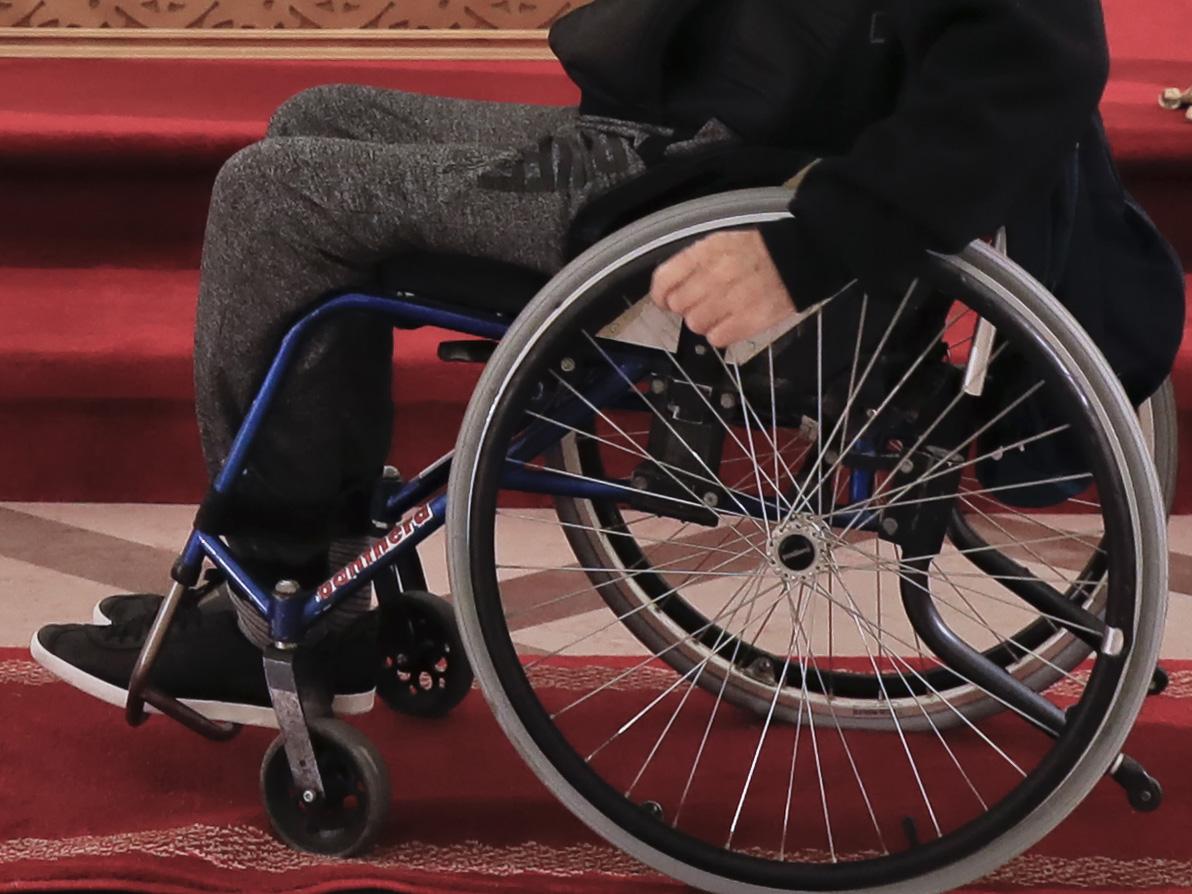High Court rules Tories' disability benefit changes ‘blatantly discriminate’ against mental health patients
Judge rules government regulations to personal independence payment (PIP) breach human rights and 'cannot not be objectively justified'

Your support helps us to tell the story
This election is still a dead heat, according to most polls. In a fight with such wafer-thin margins, we need reporters on the ground talking to the people Trump and Harris are courting. Your support allows us to keep sending journalists to the story.
The Independent is trusted by 27 million Americans from across the entire political spectrum every month. Unlike many other quality news outlets, we choose not to lock you out of our reporting and analysis with paywalls. But quality journalism must still be paid for.
Help us keep bring these critical stories to light. Your support makes all the difference.
The High Court has ruled that government changes to the disability benefit system “blatantly discriminate” against people with mental health problems and are in breach of their human rights.
The landmark court case, brought by a woman with mental health difficulties on Thursday, ruled that the regulations “cannot not be objectively justified”.
An amendment to personal independence payment (PIP) earlier this year introduced regulations limiting the amount of support people with psychological distress could receive for making journeys.
But the judge said the Government’s claims that mental health sufferers require less support to travel were in breach of the Human Rights Act, and amounted to no more than “subjective opinion”.
Because they were discriminatory, the judge also found that the Secretary of State did not have lawful power to make the regulations without consultation, because they went against the very purpose of what the PIP regime sought to achieve.
The case, brought by the Public Law Project on behalf of the woman, could see more than 160,000 people with mental health problems become entitled to additional support from PIP if this ruling stands.
Campaigners and senior opposition politicians hailed it as a “significant victory” for people with mental health problems, urging that the Government should now compensate all those who have been adversely affected and suffered hardship.
During the course of the trial, the Government accepted that the testing carried out for PIP had not looked at whether the basis for treating those with psychological distress differently was sound or not, and the testing actually done was limited.
The woman’s claim was supported by evidence from the National Autistic Society, Disability Rights UK, Revolving Doors and Inclusion London, with charity Mind and the Equality and Human Rights Commission also intervening.
In response to the ruling, she said: “This judgment is important for a community of people with mental health problems fighting for their lives against discrimination.”
Debbie Abrahams, Shadow Work and Pensions Secretary, said: “This landmark ruling is a damning indictment of the Government’s discriminatory approach to PIP support and its refusal to make this support available to people with mental health conditions.
“So much for the Prime Minister’s commitment to deliver parity of esteem for mental health. When the Government should have been listening to successive court rulings on PIP payments and correcting injustices for people with debilitating mental health conditions, they decided to undermine the legal basis for the judgments and introduce emergency legislation.”
Green Party co-leader Jonathan Bartley said: “The courts have ruled that the Government’s actions were discriminatory and unlawful. The Government should now compensate all those who have been adversely affected and suffered hardship.
“Disabled people shouldn’t have to go to the courts to win basic rights which should already be theirs. The Government must not be allowed to go on treating disabled people as second class citizens.”
Dr Jed Boardman, the Royal College of Psychiatrists’ social inclusion lead, welcomed the ruling, saying: “We can’t accept a benefits system that treats people with mental health difficulties worse than those with physical health difficulties.
“The medical evidence I gave to the court was clear, mental health conditions such as agoraphobia significantly impact on sufferers’ ability to plan or follow the route of a journey.
“I’m delighted that the court has agreed the Government’s decision to change the law to prevent people with mental health conditions accessing the support they need was blatantly discriminatory.”
Paul Farmer, chief executive of Mind, said the ruling acknowledged that the regulations discriminate against people with mental health problems and upheld the principle that PIP should look at the impact your condition has on one’s life, not the condition itself.
“The judgment is clear that the Government has no evidence for its claim that people who experience psychological distress need less support than other disabled people,” he added.
“The Government’s stance on this issue is symptomatic of all the deep concerns that we have about the benefits system as a whole – it just does not understand mental health problems and the impact they can have on a person’s life.”
The Government intends to appeal the decision. The regulations will not be quashed until the Court of Appeal decides whether or not the appeal should proceed. A decision is anticipated in early 2018.
A DWP spokesperson said: “PIP replaced a system that was less generous for people with mental health conditions and is designed to consider the broader picture of how someone’s life is affected by their disability or health condition.
“We are disappointed the judgment fails to recognise that PIP provides more support to people with mental health conditions than ever before.”
Subscribe to Independent Premium to bookmark this article
Want to bookmark your favourite articles and stories to read or reference later? Start your Independent Premium subscription today.
Join our commenting forum
Join thought-provoking conversations, follow other Independent readers and see their replies
Comments